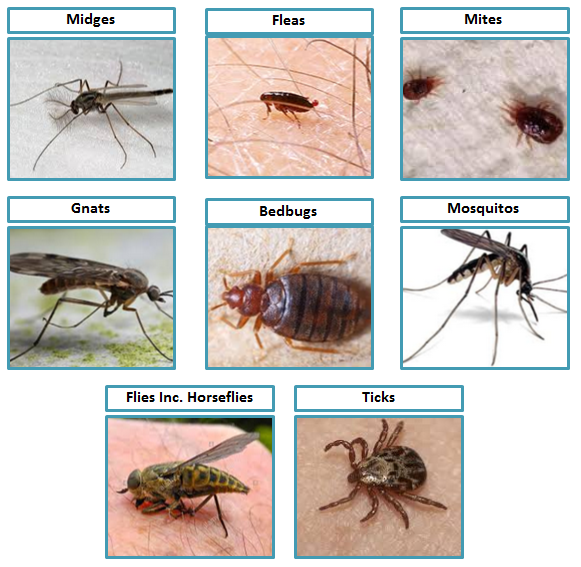Bites are small punctures in the skin that are caused by insects. When the insect bites it release saliva into the wound triggering an allergic reaction which causes the area to swell, blister or itch. Most bites do not cause any serious complications and resolve within a few hours but some patients can suffer an extreme allergic reaction called anaphylaxis.
Bites from insect in the UK are not usually serious unless the patient has a serious allergic reaction. There are greater risks associated with getting bitten abroad as the insects are more likely to carry diseases. The risk is much greater in countries in Africa, South America and Asia.
Some of the most common insects that bite are:-

Most bites only cause mild discomfort but when travelling to certain countries there may be an increased risk of contracting diseases from mosquito bites. The most common diseases transmitted by mosquitos are malaria and dengue fever.
The only way to prevent dengue fever is to avoid being bitten; there is no vaccine or prophylactic treatment that can be used. Giving advice on avoiding mosquito bites is therefore an essential part of preparing your customers for holiday.
There are a number of precautions patients can take to reduce the risk of being bitten by insects here are a few that you can recommend:-
- Cover exposed skin particularly when outside at the times insects are more active e.g. sunrise and sunset
- Always wear shoes when outdoors
- Apply insect repellent to exposed areas of the skin; those contain diethyltoluamide (DEET) at a concentration of 50% are recommended for malaria areas whilst lower strengths are appropriate for none malaria zones
- Avoid using strong perfumed products as these attract insects
- Avoid non-flowing water such as pools and lakes as insects are commonly found in these areas
- If travelling to a high risk area, sleep in a room with insect proof screens at the windows or under a mosquito net.
Treating Insect Bites
If your customer is seeking advice on bites then you should recommend the following to treat small local reactions:
- Wash the bite with soap and water
- Place a cold compress over the affected area to reduce swelling
- Avoid scratching the area as this will cause the bite to become swollen and itchy and could cause secondary infection
Antihistamine creams and sprays containing mepryamine, help to reduce swelling, redness and itching. Antihistamine tablets can also be used for the treatment of bites especially where the patient has several bites that cover a large area of skin.
Hydrocortisone 1% cream is very effective treatent for reducing the itch and swelling associated with insect bites.
